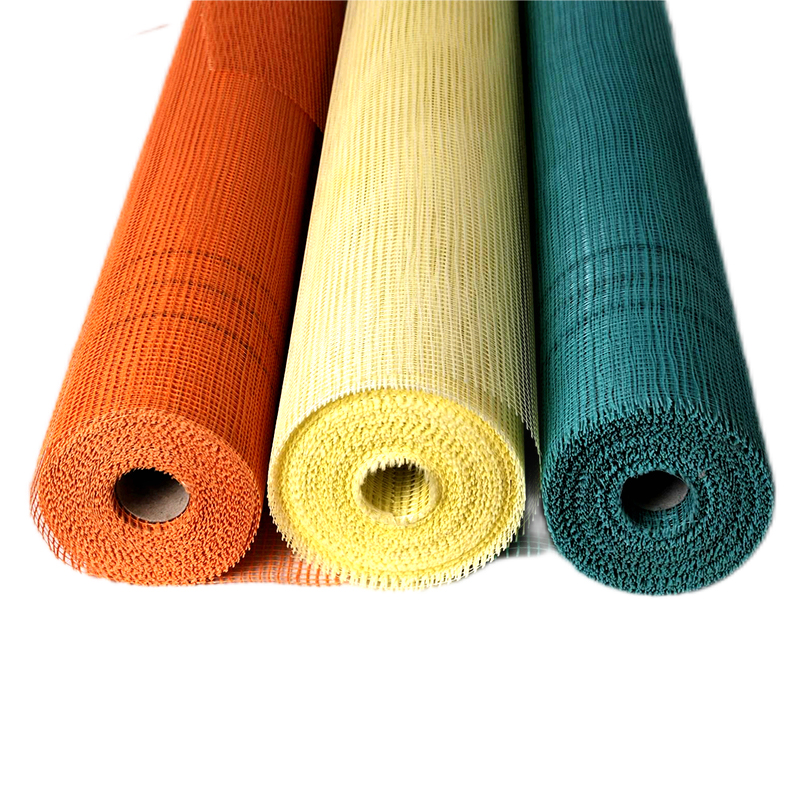Aug . 29, 2024 12:55 Back to list
ce certification concrete reinforcement fiberglass mesh
Understanding CE Certification for Concrete Reinforcement with Fiberglass Mesh
In today's construction industry, durability and strength of materials are paramount, particularly in concrete applications. One innovative solution that has gained significant attention is the use of fiberglass mesh for concrete reinforcement. This material not only enhances the structural integrity of concrete but also offers several other benefits, such as reduced weight and resistance to corrosion. However, to ensure its effectiveness and safety in various applications, CE certification becomes crucial.
CE certification is a designation that indicates a product complies with European safety, health, and environmental protection standards. For fiberglass mesh used in concrete reinforcement, this certification ensures that the product meets stringent European Union (EU) regulations. This is vital for manufacturers and consumers alike, as it guarantees that the mesh has been rigorously tested and proven to perform under defined conditions.
Fiberglass mesh is an advantageous reinforcement tool due to its high tensile strength and lightweight nature. Unlike traditional steel reinforcements, fiberglass does not corrode over time, which can compromise the integrity of concrete structures. This makes it an excellent choice for various applications, including pavements, bridges, and structural slabs. Additionally, its non-conductive properties contribute to safety in electrical installations, helping to mitigate risks related to electrical conductivity.
ce certification concrete reinforcement fiberglass mesh

Obtaining CE certification for fiberglass mesh involves a comprehensive evaluation process. Manufacturers must demonstrate compliance with relevant standards, which may include mechanical performance, resilience to environmental factors, and longevity. The certification process often necessitates laboratory testing, where samples of the mesh are subjected to various stress and strain conditions to assess their performance. Once a product successfully meets these criteria, it can be labeled with the CE mark, granting manufacturers access to the European market and providing consumers with confidence in their purchase.
Moreover, the use of CE-certified fiberglass mesh can also lead to cost savings over the lifespan of a structure. Although initial material costs may be competitive, the long-term benefits of reduced maintenance and prolonged durability greatly outweigh these expenses. With fewer repairs needed over time, project managers can allocate resources more efficiently, contributing to overall project success.
As the construction industry continues to evolve, incorporating innovative materials like fiberglass mesh becomes increasingly important. CE certification not only assures quality and safety but also promotes a culture of excellence within the industry. Stakeholders, including architects, contractors, and builders, can make informed decisions by relying on CE-certified products, thus fostering trust and accountability.
In conclusion, the significance of CE certification for concrete reinforcement with fiberglass mesh cannot be overstated. It serves as a benchmark for quality assurance, ensuring that products meet high European standards. The benefits of using fiberglass mesh, combined with the assurance provided by CE certification, make it an attractive option for modern construction projects. As awareness about the advantages of this technology grows, it is likely that the adoption of CE-certified fiberglass mesh will continue to rise, leading to safer, more durable, and cost-effective construction solutions.
-
The Ultimate Guide to Fiberglass mesh Tape for Drywall and Joint ApplicationsNewsJul.18,2025
-
The Ultimate Guide to Alkali Resistant Drywall Joint Tape: Types, Benefits, and ApplicationsNewsJul.18,2025
-
The Essential Guide to Fiberglass Mesh Tape: Uses, Benefits, and ApplicationsNewsJul.18,2025
-
The Complete Guide to PVC Corner Beads with fiberglass Mesh for Plastering and Drywall ProjectsNewsJul.18,2025
-
A Comprehensive Guide to fiber glass Yarns: Understanding Roving, C, and E Glass FibersNewsJul.18,2025
-
A Complete Guide to Fiberglass mesh Tape for Drywall, Cement Board, and Wall CracksNewsJul.18,2025


















